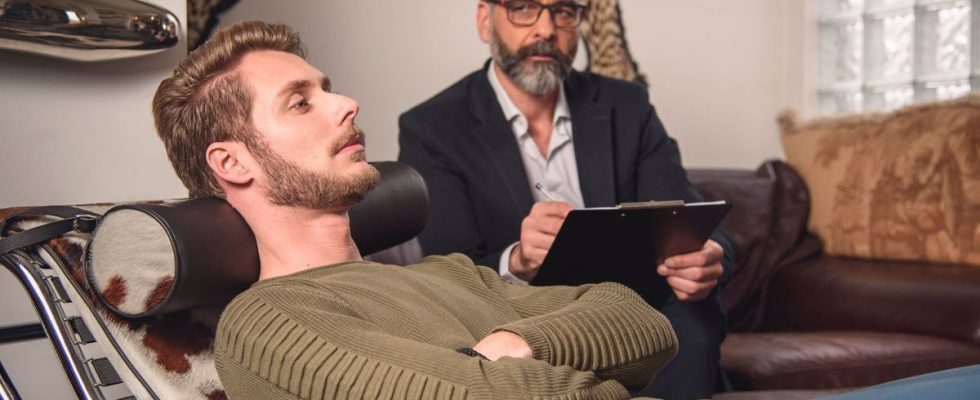Published on
Updated
Reading 2 min.
in collaboration with
Siyana Mincheva (Psychologist, psychotherapist)
Mental health issues affect both men and women. Would the former be less inclined to go to the psychologist? Psychologist Siyana Mincheva’s take on the issue.
From childhood, some parents educate their boys with the aim of toughening them: “Don’t cry like a little girl“, “You are stronger than that“…
So many sentences that push them to deny their emotions and above all not to let them show. Is it this education that explains why men are less inclined to go see a psychologist, even when they need one?
A question of ego and virility, sometimes
To understand this phenomenon and find out if it is real, Doctissimo interviewed Siyana Mincheva, psychologist. “Men have no more trouble going to the psychologist, because in my practice, I meet as many men as women.“. According to her, some men need to feel like a “man”. “It’s something very personal, very individual, some men need to feel their virility, their masculinity” the psychologist further explains. “There is something of the order of the ego which is knotted, it is a personal story“.
Should we force a person to see a psychologist?
For Siyana Mincheva, the approach must be personal and therefore made by the man (or woman) himself. “You cannot force a person to enter therapy. Whether a man or a woman. Working on yourself is a personal process. If the person does not give importance to these sessions, there is no point in trying to convince them to get help.”.
Go see a psychologist, something reserved for women?
According to the psychologist, this is not true, she does not make this observation. “We cannot stop at saying that men learn to take blows without saying anything, to grit their teeth and move forward. It’s a banality. Man is a human being like any other, with his emotions, he is not made of iron.” For her, it’s more of an individual thing. “A woman may also have difficulty consulting. For example, in the case of an eating disorder, if she does not feel the need to seek help.”. Education also plays a role. “If there were taboo subjects in childhood, this can play a role. Going to consult a psychologist, which would, for example, be perceived as a sign of weakness..” concludes Siyana Mincheva.

